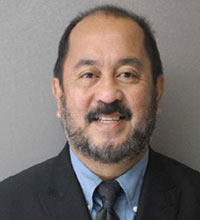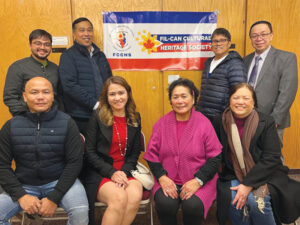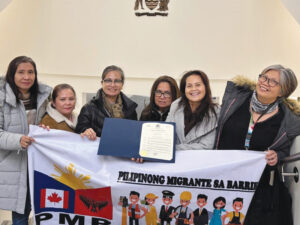Three Philippine presidentiables are hoping to get the support of Filipino voters in Canada by seeking advice from a Filipino-Canadian senator.
This was revealed by Senator Tobias Enverga, the first Filipino-Canadian appointed to the Canadian Senate, in a media interview while visiting the Philippines.
Enverga was at the official residence of the Canadian ambassador in Manila on the occasion of the presentation of beneficiaries to Canada’s Typhoon Haiyan Relief Fund.
“They want some assistance or information,” said Enverga when asked what the presidential candidates wanted from him. “They want some sort of endorsement or some advice on how to deal with our kababayans there.”
“I told them I cannot be involved in politics in the Philippines,” he added. “I’m not even endorsing my cousin who is running for congressman in Quezon (Mark Enverga). I don’t want to endorse anybody because we are foreigners technically.”
Sen. Enverga said the last time he was approached by one of the candidates was in May last year while visiting the country.
“I can’t give the names because it’s private and confidential discussion,” he said. “When I’m here I don’t announce anything. Nobody knows except today. I just go around places at a very low profile. I’m here to help some projects in communities. I was in Baguio, Bataan, Quezon, Laguna.”
According to Enverga, Filipinos in Canada have already shown interest in the forthcoming presidential elections in the Philippines.
There are 5,000 to 25,000 Filipino Canadian voters in Canada.
According to government records, about 70,000 overseas absentee voters are registered in the Americas, and in the 2013 senatorial elections, 20,000 of them voted.
Now numbering about 800,000, Filipinos are the fastest growing migrant group in Canada.
While the more than a million overseas absentee voters is a small fraction of the 50 million total Filipino voters, Enverga believes Filipinos overseas influence the votes of their relatives in the Philippines, especially because of their significant remittances.
Last year, the amount of remittances from Canada to the Philippines was at $2 billion, or about 10 percent of the total, Ambassador Reeder said.
As of September 2015, Comelec puts the number of registered OAV voters at 1,103,809, led by Middle East and North Africa with 475,729 voters, followed by Asia Pacific with 278,060, then North and Latin America with 223,661, and Europe with 127,359.







